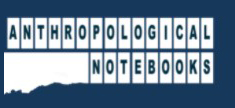Sacred but not holy: Awe, spectacle, and the heritage gaze in Danish religious heritage contexts
 Professor Oscar Salemink, PhD fellow Rasmus Rask Poulsen and PhD fellow Sofie Isager Ahl published an open access article titled “Sacred but not holy: Awe, spectacle, and the heritage gaze in Danish religious heritage contexts” in the Slovenian journal Anthropological Notebooks. The article is part of a special issue titled Space and religious heritages, guest-edited by Anna Niedzwiedz and Kamila Baraniecka-Olszewska.
Professor Oscar Salemink, PhD fellow Rasmus Rask Poulsen and PhD fellow Sofie Isager Ahl published an open access article titled “Sacred but not holy: Awe, spectacle, and the heritage gaze in Danish religious heritage contexts” in the Slovenian journal Anthropological Notebooks. The article is part of a special issue titled Space and religious heritages, guest-edited by Anna Niedzwiedz and Kamila Baraniecka-Olszewska.
Based on an ideal-typical distinction between the holy and the sacred, this paper considers the effects of the heritagization of religious spaces in the three Danish World Heritage sites of Jelling, Roskilde and Christiansfeld. Religious sites are often intended as spectacles inspiring religious awe in the religious constituency, but when considered heritage, the site becomes a spectacle for a different public, for whom the sacrality of the place is not necessarily motivated by religious piety. Instead, the church as heritage site may be a sacralized focal point for ontological pride on behalf of another, secular constituency, like the region or nation; or for vicarious nostalgia of a tourist public. The religious congregation itself might even become the object of a heritage gaze on the part of cultural experts and tourists who foreground the “authenticity” of the religious experience in the spatial environment of the place in line with UNESCO principles.
In this paper the authors argue that the overlaying of a heritage gaze over a religious gaze results in the potential hybridization of religion as a category of heritage. This not only hybridizes religious piety but inadvertently frames it as cultural heritage through the secular, immanent frame of heritage.
The research for this article took place in the framework of the European project HERILIGION (The heritagization of religion and the sacralization of heritage in contemporary Europe) (2016-20), funded by Humanities in the European Research Area (HERA) within the HERA programme Uses of the Past the project received funding from the European Commission through Horizon 2020. The research involved teams of researchers in Denmark, the Netherlands, Poland, Portugal and the United Kingdom. Rasmus Rask Poulsen and Sofie Isager Ahl were research assistants within this project, and subsequently went on to pursue their own PhD projects at the University of Copenhagen.
You can find the article and abstract here http://notebooks.drustvo-antropologov.si/Notebooks/article/view/128
